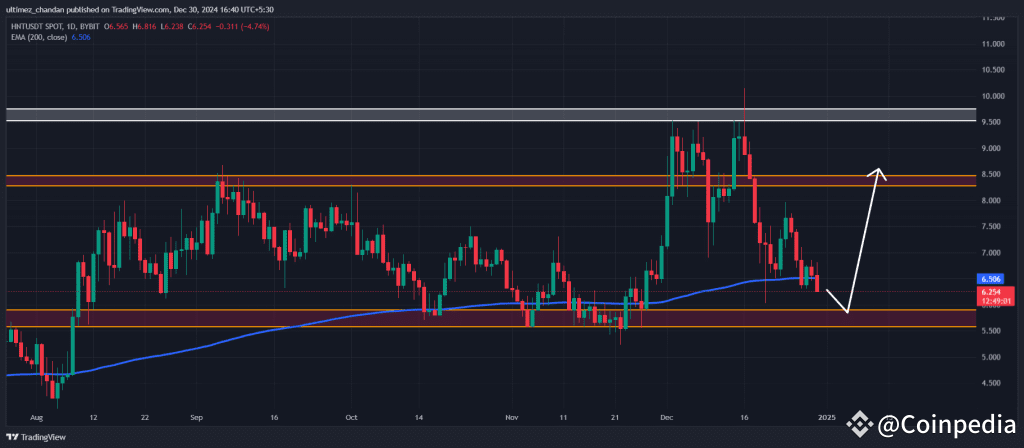Top 10 DePIN Coins to Invest in 2025

In the rapidly evolving cryptocurrency landscape, Decentralized Physical Infrastructure (DePIN) is emerging as a significant narrative for investment in 2025. DePIN projects leverage blockchain technology to enhance real-world physical infrastructure, creating value for both consumers and producers. This article highlights the top 10 DePIN coins that are expected to perform well, showcasing their market capitalizations and promising price actions. Among these, Helium (HNT) stands out with its bullish price action pattern, suggesting a potential surge of 30% to reach $8.5. Similarly, Filecoin (FIL) is anticipated to rally by 65% if it maintains support above $4.90, while Theta Network (THETA) could see a 36% increase if it breaks above $2.45.
Other notable mentions include Internet Computer (ICP), which has found support at critical levels, indicating a potential 55% surge to $15.45. IOTA has attracted attention with a remarkable 540% increase following recent events, although it has faced a correction. If it holds above $0.28, a 35% rise to $0.40 is plausible. Render (RENDER) is also positioned for a breakout, with a potential 60% increase if it surpasses $7.22. Meanwhile, Arweave (AR) and Akash Network (AKT) are showing consolidation and support at key levels, suggesting possible surges of 50% and 60%, respectively.
Lastly, AIOZ Network (AIOZ) and Hivemapper (HONEY) are also on the radar, with AIOZ poised for a 55% increase if it holds above $0.82 and HONEY potentially surging by 50% if it breaks the $0.09 resistance. These DePIN coins represent significant opportunities for investors in 2025, especially if the market experiences a bullish trend.
Related News





